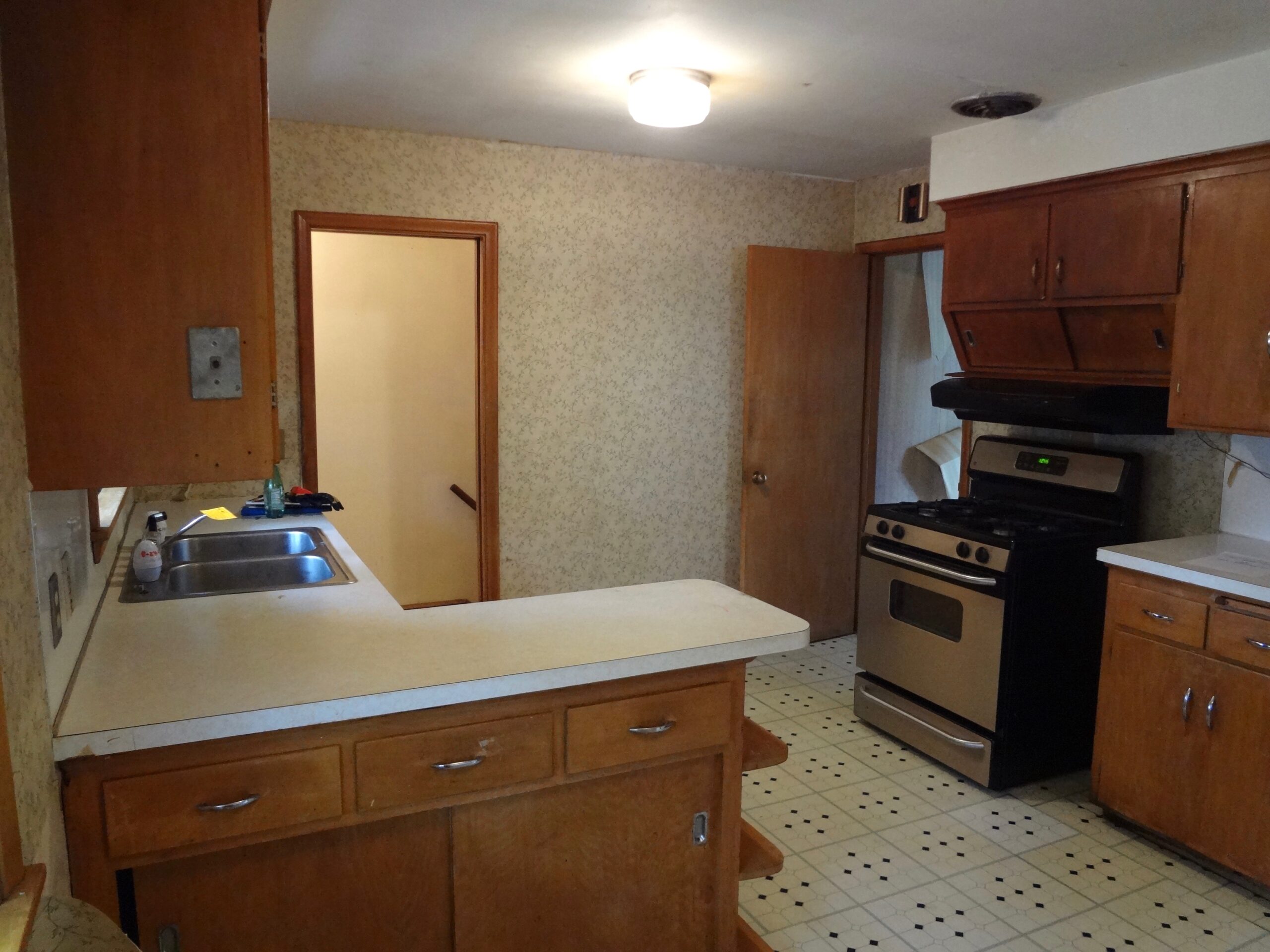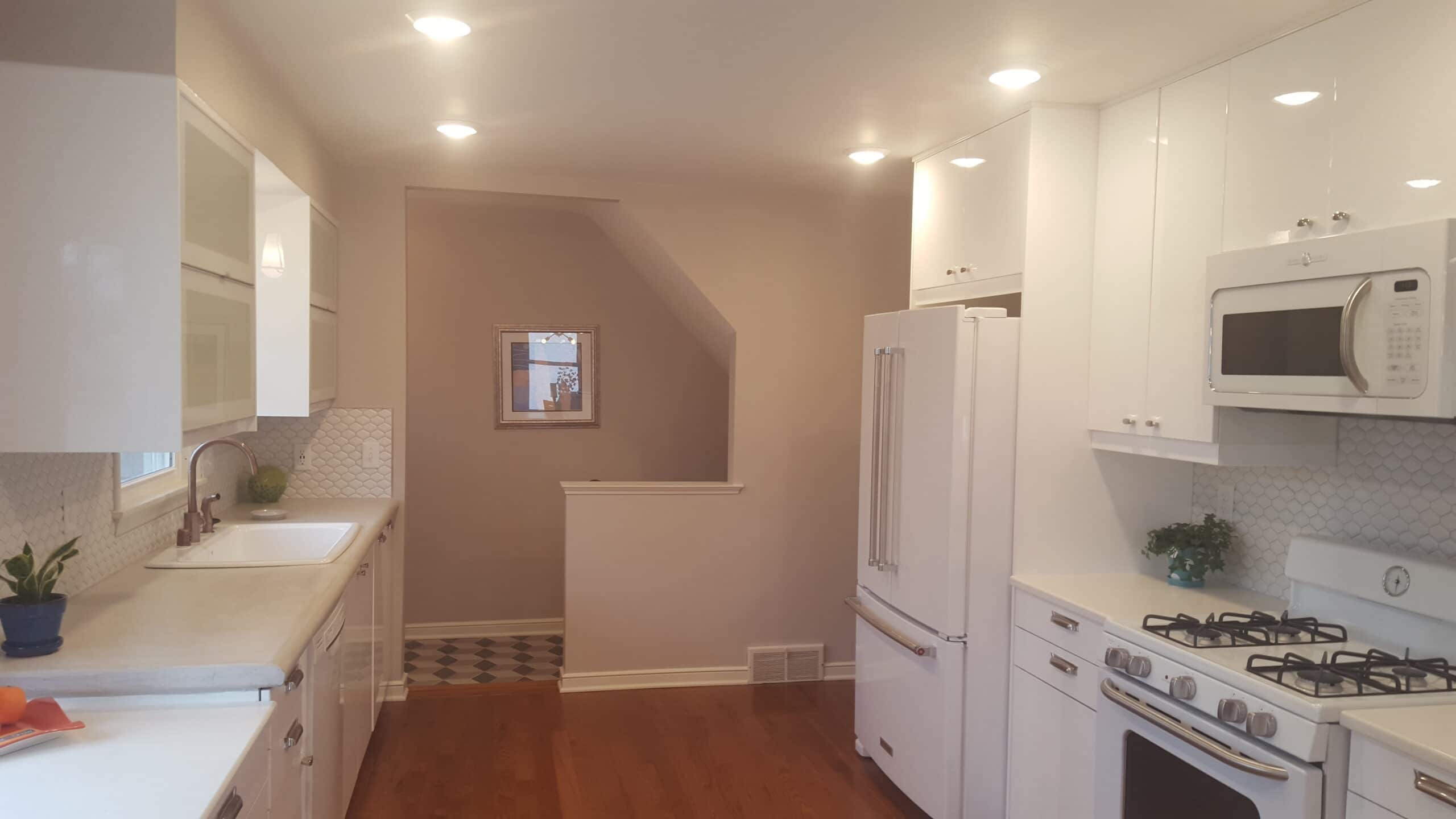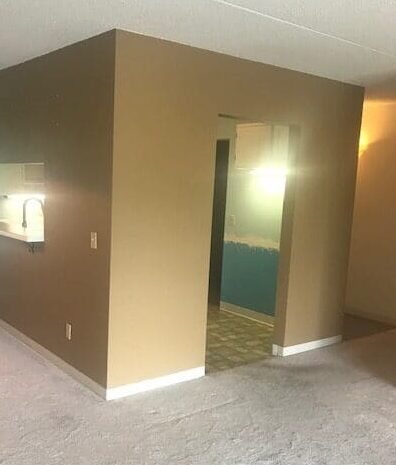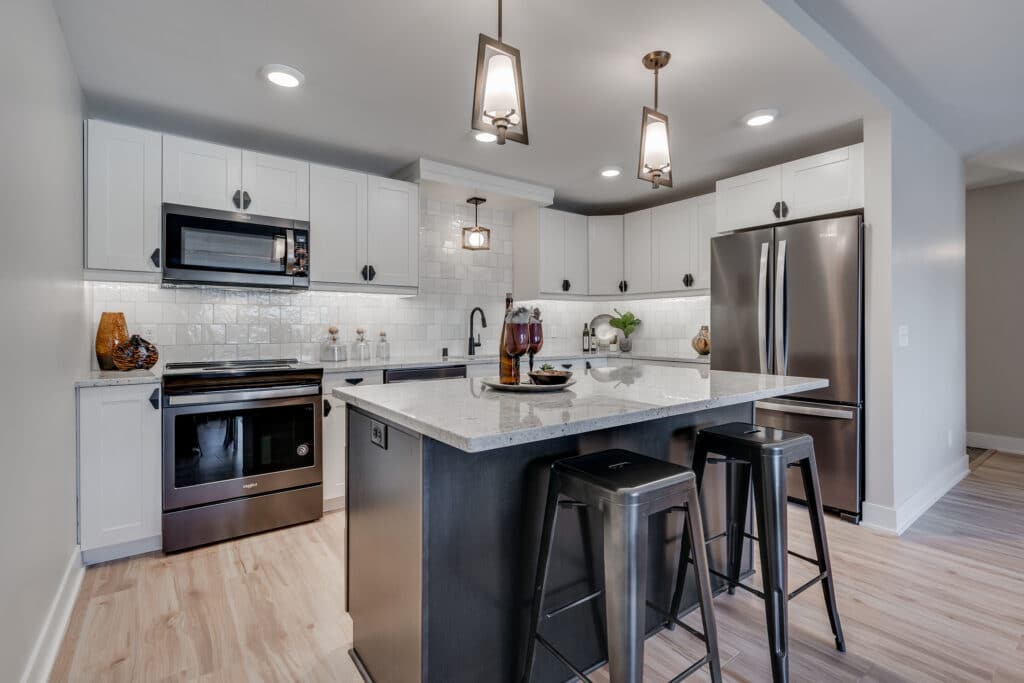As a house flipper, I’ve looked at a lot of houses. And as a realtor, I’ve looked at a lot of houses. I look for different things when looking at homes depending on my client (when getting ready to do a flip, I’m the client!) Looking for a house to flip is very similar to looking for a fixer-upper for clients who want to do the work themselves. I enjoy working with those clients because the journey from fixer-upper to fixed-up is a so rewarding, kind of like finally getting off your braces after two years of tasting metal in your mouth.
So let’s get started. Here’s an example of a house that we flipped that would have also been a good candidate for a fixer-upper.
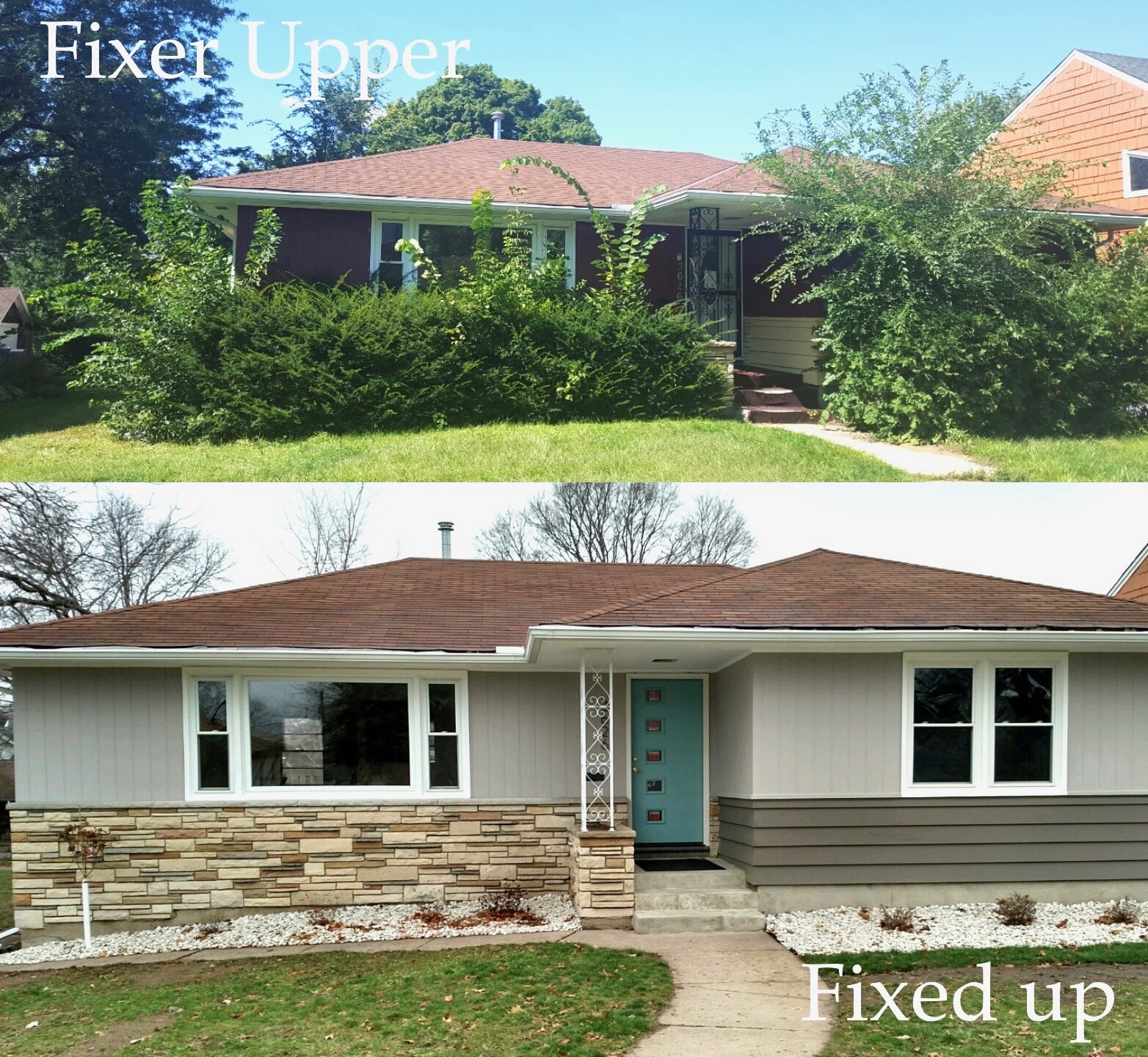
From Fixer-upper to Fixed-up
This house had a good roof, solid walls and updated windows. Unfortunately, it had a crack in the foundation but we were able to get it professionally repaired right away. This house had one working bathroom so it would have been possible to live in the house during the renovation but since it involved quite an extensive renovation, this would have been very tiresome to live through. It all depends on your tolerance for living in chaos.
Buying a fixer-upper is a great way to get into a home or neighborhood that you can’t quite afford but, please, do it with your eyes wide open. Otherwise, you could find yourself in a bit over your head. With that in mind, here are some things to consider when buying a fixer-upper.
PROS AND CONS OF BUYING A FIXER-UPPER
First off, some of the pros of buying a fixer upper are:
- It’s an opportunity to increase your home’s value through sweat equity.
- It’s a great chance to personalize your home right from the start.
- You get to control which projects get done according to your priorities.
- Fixer upper homes are often more affordable and you can often apply for and receive home renovation loans, such as an FHA 203(k) loan, VA renovation loan, a HomeStyle loan guaranteed by Fannie Mae, or a CHOICERenovation loan guaranteed by Freddie Mac.
On the flip side, some of the cons to buying a fixer upper are:
- They’re difficult to budget as there are almost always unexpected expenses.
- The timeline is difficult to manage, especially if you need to hire out a lot of the work.
- They’re tiresome. Living in a construction zone is no fun.
- If the repairs/renovations needed are extensive, you may have to wait to move in.
- It’s a risk. There are no guarantees of getting your money back when you sell.
Fortunately, if you’re somewhat handy, enjoy learning new skills, and aren’t afraid of getting dirty and working hard, buying a fixer-upper is a great option. And after flipping multiple houses, there are a few things I’ve learned along the way. So in the words of Master Po, the great Kung Fu master teacher please, ‘Learn from me, Grasshopper!’ *
LOCATION. LOCATION. LOCATION!
Obviously, you want to pick a home in a neighborhood that you like. Try to pick one of the worst homes in a good neighborhood. The mantra for realtors has always been ‘Location. Location. Location!’ because just about anything in a house can be fixed but, unfortunately, unruly neighbors cannot. Just like not being able to pick our siblings, we can’t pick our neighbors.
So once you’ve narrowed down some areas and neighborhoods that you like, it’s time to start looking for your diamond in the rough. First off, make sure the bones of the house are good. A solid roof, solid walls and good windows give you a fighting chance on the success of your renovation. Not having to undertake these big projects will speed up your timeline, and you won’t have to be living elsewhere while those major projects are being completed. Try to buy a house that you can live in while you’re renovating. Having to rent during the reno will up your total cost significantly so avoid it if you can.
I HEART UGLY KITCHENS!
As far as kitchens–the uglier, the better! Photos don’t adequately represent the true level of abuse that this kitchen above had been through. We were hoping to save the cabinets but between the layer of grease covering them and the general battered condition, we decided to demo the whole thing. Since you may also be ripping it all out and starting over anyway, don’t pay premium for a halfway functional kitchen.
Same with bathrooms. All you need is one working bathroom while you’re renovating so if there’s a secondary bathroom that you really don’t like, just rip out the entire kit and caboodle. Plumbers like to work with all new pipes anyway so, at least, the plumber will be happy.
FOUNDATIONS FIRST
Not all foundation cracks are bad. Know the difference, or bring someone along who does. We’ve bought houses that many people have passed on due to the foundation cracks but we were able to get in a professional to quickly fix them. This should be the first thing you take care of in your renovation. I cannot emphasize enough how essential a good foundation is to a good house.
COLORS LAST
When home shopping, don’t look at the colors. Avert your eyes! They don’t matter. Paint, carpet, flooring are like underwear–easily changed. Picking out colors that you like is your chance to personalize the home and really make it your own. But selecting colors and finishes will be some of the final decisions that you make so don’t rush them. Spend enough time really thinking about how you want your home to look so that it will reflect you, your family and the way you live.
THE BENEFITS OF HOME INSPECTIONS FOR FIXER-UPPERS
Once you’ve landed on a house, it’s a good idea to get a home inspection before you close. This report will outline all the repairs that you’ll need to do and will help you to plan your strategy for the renovation.
BUDGET WISELY. AND THEN BUDGET MORE!
And, lastly, with any renovation, budget matters. Research repair and renovation costs as much as you can. And then plan on spending even more. There are ALWAYS surprises behind those walls. And the older the house, the more surprises. If it’s a big renovation, don’t be surprised if the renovation ends up in the six figures–even if you’re doing a lot of the work yourself. The costs of materials, permits, and professionals add up very quickly.
Good luck with your home search and happy hunting!
* For all you youngsters out there, this was from "Kung Fu', a very popular 70s tv show.


